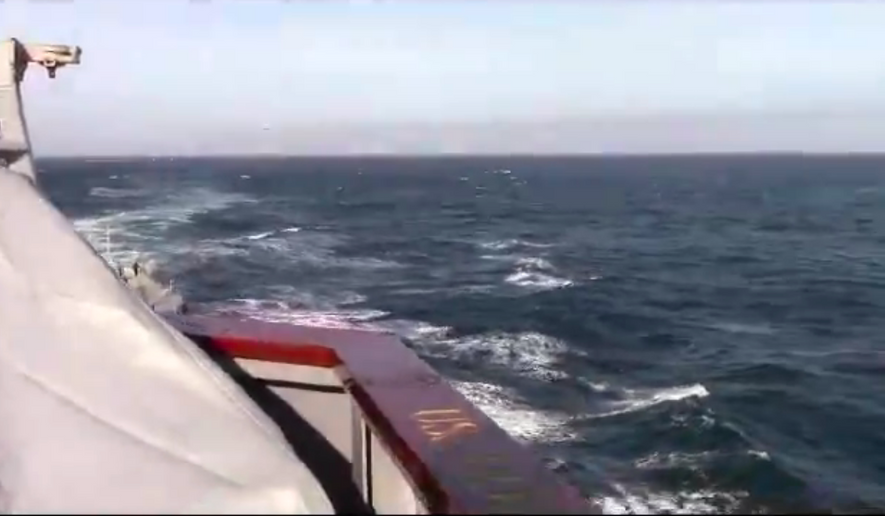A Russian fighter jet on Sunday buzzed past an American warship operating in the Black Sea, officials said, describing the incident as a dangerous, unjustified “low pass.”
The U.S. Sixth Fleet said the Russian jet flew over the destroyer USS Donald Cook, which is operating in international waters in the Black Sea. Another destroyer, the USS Porter, and an American refueling ship, the USNS Laramie, also are in the Black Sea as part of an American-led effort to beef up defenses in the strategically vital region.
Russian military officials have protested the moves and over the weekend made their objections even clearer. U.S. military personnel captured dramatic video footage of the Russian plane coming unusually close to the U.S. ship.
The @USNavy routinely operates in the Black Sea to reassure @NATO Allies & partners and ensure security & stability in the region.
— U.S. Naval Forces Europe-Africa/U.S. 6th Fleet (@USNavyEurope) January 31, 2021
Today, 🇺🇸 #USSDonaldCook operating in international waters in the #BlackSea while a #Russian SU-24 does a low pass nearby.#PowerForPeace pic.twitter.com/6JGNZoncZb
“The @USNavy routinely operates in the Black Sea to reassure @NATO Allies & partners and ensure security & stability in the region,” the U.S. Sixth Fleet said in a tweet. “Today, #USSDonaldCook operating in international waters in the #BlackSea while a #Russian SU-24 does a low pass nearby.”
U.S. and Russian military forces also have had close encounters in Syria, in the icy waters of the Arctic and in the skies near Alaska in recent months.
Sunday’s low pass by a Russian fighter was the latest step in a series of responses from the Kremlin, which clearly considers the U.S. military presence on its doorstep to be a threat.
On Friday morning, the Russian military said it had launched its own series of naval exercises in the Black Sea, destroying mock air targets and practicing the use of electronic warfare jamming measures.
The dueling maneuvers come just days after President Biden had his first phone call with Russian President Vladimir Putin. They also come amid an agreement by Washington and Moscow to extend the landmark New START nuclear arms treaty for another five years.
• Ben Wolfgang can be reached at bwolfgang@washingtontimes.com.




Please read our comment policy before commenting.